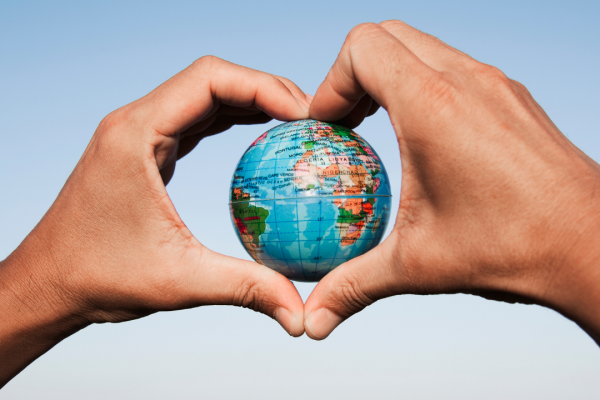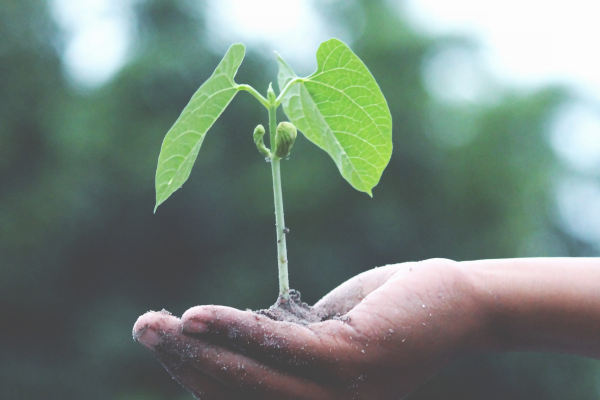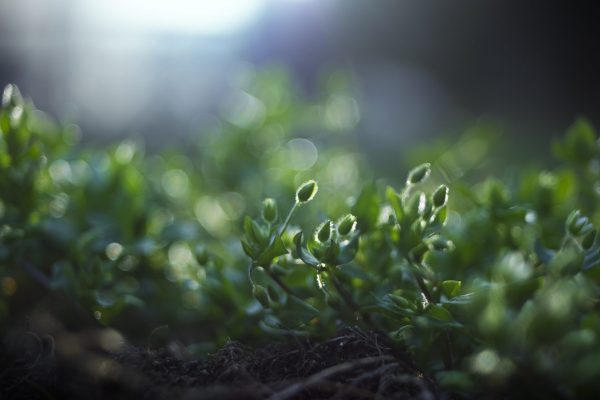The Earth is an Amanah (trust) given to us by Allah (SWT). The etiquette of Amanah is to return it to its keeper in the same condition it was given.
The Earth is an Amanah (trust) given to us by Allah (SWT). The etiquette of Amanah is to return it to its keeper in the same condition it was given.
Climate change will be the single biggest threat to humanity, this decade.
The United National Intergovernmental Panel on Climate Change say that damage caused by the shift could be irreversible by 2030 – but there’s still time – you and I can still do something about it.
What is Climate Change?
In short, our planet is getting hotter. Year on year, the average global temperature is rising, which has catastrophic effects. Greenhouse gases, such as carbon dioxide and methane, play a significant and much-needed role in keeping the planet warm but human activity is producing too much of these greenhouse gases which is heating up the earth much more than needed.
Human activities that cause excess greenhouse gases include:
- Farming cows to produce beef
- Deforestation
- Driving
- Certain appliances e.g. fridges and air conditioning.
This is by no means an exhaustive list.
What Are The Effects Of Climate Change?
The increasing temperature has various geological and environmental impacts:
- It melts the ice on Antarctica, which displaces and kills the animals that live there, raises the sea levels and causes floods
- It threatens the growth and maturation of much-needed crops for food
- It increases the chances of forest fires.
We’ve already seen instances of this in recent history such as the famine in Yemen, flooding across South Asia and generally increased rainfall.
In short, climate change is a threat to our food and water supplies and therefore the long-term existence of humans and animals alike.

Islam and Climate Change
Climate change could wipe out our existence and therefore is an issue of survival and hardly needs religion or doctrine to persuade us to do something about it. Nevertheless, we as Muslims, need to remind ourselves of the status of the Earth within Islam and what the Qu’ran and Hadith have to say on this topic.
First and foremost, the Earth is an Amanah (trust) given to us by Allah (SWT). The etiquette of Amanah is to return it to its keeper in the same condition it was given. We must not forget the Earth is alive and has a consciousness of its own, continually declaring the glory of God:
The seven heavens declare His glory and the earth too, and those who are in them, and there is not a single thing but glorifies Him with His praise, but you do not understand their glorification; surely He is Forbearing and Forgiving”
17:44
The verse makes it abundantly clear that everything in creation glorifies God. If it can glorify God, it can also complain to God, and on the Day of Judgement, it will complain about how it was treated. In fact, the very limbs we used to damage the Earth will confess on the Day:
That Day, We will seal over their mouths, and their hands will speak to Us, and their feet will testify about what they used to earn”
36:65
Further to this, we shouldn’t forget the benefit we derive from this world:
It is He who sends down water for you from the sky, from which comes a drink for you, and the shrubs that you feed to your animals. with it, He grows for you grain, olives, palms, vines and all kinds of other crops. there truly is a sign in this for those who reflect.”
16:10-11
Allah (SWT) has designed the world to give us everything we need to live happily and in abundance and has warned us against desecrating it:
Do not pollute the earth after it has been set in order”
7:56
A final point on Islam’s view on climate change is the reward we attain for looking after the Earth. In Musnad Al-Bazzar, hadith number 2773, the Prophet (PBUH) talks about seven deeds whose rewards continue after death. Three of these seven include some sort of nurturing of the Earth:
- Constructing a canal
- Digging a well
- Planting a date-palm tree
In addition, the Noble Prophet (S) says:
Whoever reclaims and cultivates dry, barren land, will be rewarded by God for the act. So long as men and animals benefit from it, He will record it as almsgiving.”
(Al-Munawi, Fayd al-Qadir, vi, 39; Haythami, Majmau al-Zawaaid, iv, 67-8.)

We know the Earth is on the brink. Rational thinking and our faith tell us we need to do something about it. Here are our seven recommendations.
1. Walk Or Cycle Short Distances
Within your own capacity walk or cycle to places you regularly frequent such as your local mosque or a friends house. Not only is it healthy but Sunnah too! In fact, walking barefoot on soft lands such as sand and grass is known to greatly improve mental health and wellbeing.
2. Car Share As Much As Possible
Perhaps you can rideshare with colleagues to work or with friends when out and about. Passenger vehicles are a huge emitter of carbon dioxide – each car roughly emits 4.6 tons of CO2 per year. If there are fewer cars on the road, the Earth breaths a little easy.
3. Say No To Plastic
Reduce plastic consumption as much as possible. Sunlight and heat cause the plastic to release greenhouse gases, which as we now know, increase the temperature of the Earth and accelerates the climate shift. A few simple and effortless things you can do is to carry your own reusable coffee cup and water bottle – in fact, make ‘reuseable’ your mantra for as many things as possible. There are so many items that now come in a reusable form such as grocery bags, straws, utensils and food containers.
4. Stop Littering
In today’s age, it is so easy to dispose of things in the proper manner. At home, make sure you split your recyclables and non-recyclables and when out and about just put stuff in a bin! Littering causes air, soil and water pollution and endangers sea and land animals alike. If you want to go a step further, sign yourself and your family up for a local litter pick.
5. Make Green Business Choices
Support supermarkets, restaurants and any other establishment that are making greener choices, whilst boycotting those who don’t.
6. Be Energy Efficient
There is now available a whole host of energy-efficient alternative appliances on the market that you can find with a quick Google search. Also, a little discipline in switching off lights, TVs, consoles, and lowering washing machine temperature will go a long way too!
7. Give Your Charity To Sustainable Causes
The next time you pay sadaqah or zakat, consider donating to a charity that offers aid in a sustainable way – be it local, national or international.
The Great Big Green Week
The Great Big Green Week takes place between 18-26 September. Climate change needs to be a huge priority for all of us. For charities, mosques, organisations and for each and every member of our community. As an often overlooked area of our faith, climate change and care for the environment is essential as we move forward to protect our world and particularly for those already living in poverty and vulnerable communities.
The Muslim Charities Forum (MCF) has partnered up with The Climate Coalition for The Great Big Green Week and would like you to get involved in their competition. Here are the steps:
- Create a video of up to 30 seconds in your favourite natural environment and tell us what climate change means to you and what you’re doing about it.
- Post the video on social media tagging MCF and like/follow the MCF pages too:
- @MuslimCharitiesForum (Instagram)
- @MuslimCharities (Twitter)
- @MuslimCharities (Facebook)
- Use the hashtags #MuslimClimateers and #AllForOne in your post.
- Nominate two friends to do the same.
Winners will receive £250 or an eco-day out with the whole family at one of the UK’s top Muslim attractions. InshaAllah.
Good luck!





